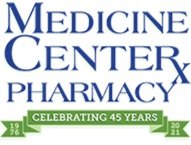Wound care is essential to healthy living. Most of us have experienced scratches or scrapes that healed naturally, but sometimes there are wounds that just will not heal. Other health issues—diabetes, circulation problems, radiation and many more can complicate the healing process, and turn the simplest wounds into complex, non-healing health issues that can cause big problems. Thanks to science, we know wounds need oxygen to heal properly, and when the body isn’t getting the oxygen it needs, there are other steps that can be taken to impact the healing process. In this segment, we discuss treatment options with Mercy Wound and Hyperbaric Center's Kim Landsberger, registered nurse and program director.
Pharmacists and Health Matters hosts Brad and Paul White discuss wound care with Kim Landsberger, RN.






















